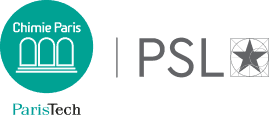

Insights from the cutting and tearing of silicone elastomers
Shelby Hutchens, University of Illinois Urbana-Champaign
Where ? ESPCI, Ondes room
Abstract: The onset of fracture in soft, elastomeric solids eludes quantitative, microstructure-based prediction due in part to combination of a large, nonlinear material response in these materials; poorly understood accumulation of damage at and near the crack surface; and complications arising from time-dependent behavior. As a result, even the commonly encountered failure geometries of cutting (driven by blade insertion) and tearing (initiated by force far from the crack tip) have not been quantitatively related to one another. Using unique observations of cutting energy in silicone elastomers, we motivate a picture of soft fracture that qualitatively and quantitatively links far-field tearing with push cutting for the first time. In this talk, I will discuss the implications of failure energies obtained from a series of elastomer networks (for which time-dependent contributions are minimal) using the recently re-developed Y-shaped, controlled cutting technique. For blades of decreasing tip radii, the cutting energy decreases until it reaches a plateau that suggests a threshold for failure. We define a super-molecular damage zone, necessary for new surface creation, using the tip radius at the onset of this threshold. Modifying the classic Lake-Thomas theory, in which failure occurs within a molecular plane, to this super-molecular zone provides order-of-magnitude agreement with the cutting energy threshold. Together, the threshold fracture energy and the super-molecular damage length scale define criteria for failure that, when implemented in finite element simulation, quantitatively reproduce the increase in cutting energy with increasing blade radius outside of the plateau.
Short bio:
Shelby Hutchens is an Assistant Professor of Mechanical Science and Engineering. Her research interests span from soft-polymeric-materials characterization to plant-inspired motion. She received all her degrees in Chemical Engineering, Ph.D. and M.S. from Caltech and B.S. from Oklahoma State. She was awarded an NSF CAREER award in 2017 and identified as an Emerging Investigator by Soft Matter in 2021.
Because of the limited capacity of the room, could you please respond if you are planning to join in the « Ondes » room: https://rdv.espci.fr/vGXL4qbEf7XwTN1t
The Zoom link for the meeting:
- This évènement has passed.
